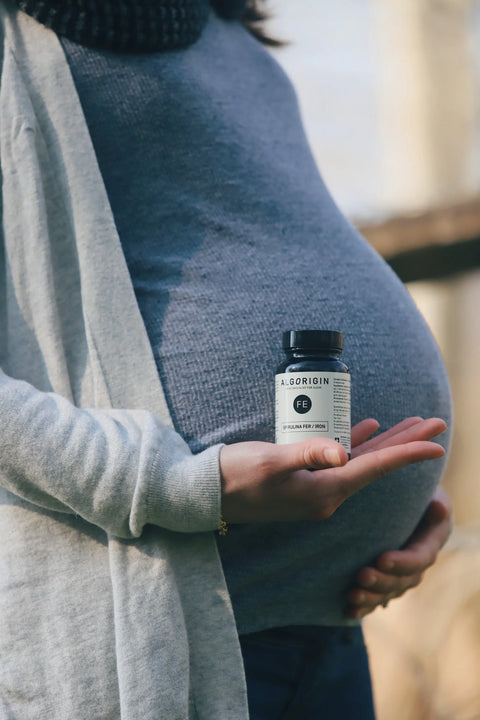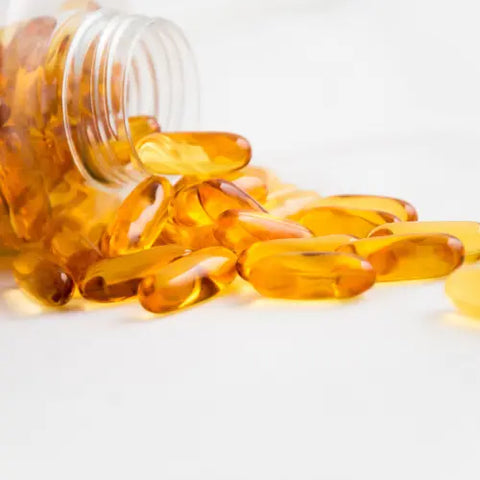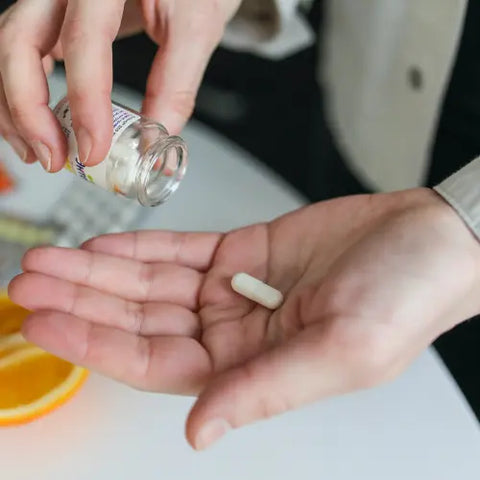To help keep moms and babies healthy , nutritional guidelines for pregnant women and those planning a pregnancy include a daily postpartum nutritional supplement. But what about after birth? While there are no specific recommendations for food supplements for postpartum mothers and very little research has been done on this topic, many prenatal vitamins and other nutrients remain essential after delivery. As with pregnancy, a healthy diet may not be enough to cover all the nutritional needs of breastfeeding mothers and all mothers caring for a newborn.

We hear a lot about the importance of prenatal vitamins before and during pregnancy, but what about after childbirth ? Should Women Take Vitamins or Supplements After Delivery? Here are 5 things to know about taking vitamins after your baby is born. Most providers recommend taking either prenatal or postnatal vitamins after delivery. Talk to your doctor before your due date to find out which vitamins, if any, you should take after delivery. While there is no general recommendation on when to stop taking a prenatal vitamin, many providers suggest continuing for at least one postpartum period. Vitamins marketed as "prenatal" and "postnatal" are generally very similar in composition. However, some postnatal vitamins contain varying levels of nutrients specifically targeted to the birthing person's body. For example, some postnatal vitamins contain extra amounts of iron to aid in recovery after delivery, vitamin D to help the body absorb calcium, and additional B vitamins to ensure that breastfeeding moms and their babies get enough. On that note...
To read: The benefits of food supplements
Postpartum nutritional supplementation is particularly important for breastfeeding

A balanced diet is probably not enough to ensure that breastfeeding mothers receive the nutrients essential for their optimal health and that of their babies. The World Health Organization recommends that breastfeeding women continue taking a prenatal and postnatal vitamin throughout the duration of breastfeeding. One study suggests that continuing to take a prenatal or postnatal vitamin containing folate, DHA, vitamin D, and iodine may support a baby's brain development, processing skills, and visual acuity. Adequate vitamin D and DHA intake is not only important for mothers, but also for their little ones! Breast milk alone does not provide babies with enough vitamin D. That is why the American Academy of Pediatrics recommends supplementing breastfed babies with 400 IU of vitamin D per day until they begin eating solid foods.
To read: Fight against oxidative stress
The CDC recommends that breastfeeding women who follow a restrictive diet (such as vegetarian or vegan) take a prenatal or postnatal vitamin while they are breastfeeding.A lack of animal protein in the diet can lead to B12 deficiency, which can cause symptoms in babies such as loss of appetite, sluggishness, slow motor development and blood problems.
Postpartum food supplement: Iron is important
Another reason to continue taking a prenatal vitamin after delivery? Increased iron. Due to the natural blood loss that accompanies childbirth, it is especially important to replenish iron stores during the fourth trimester. It may be beneficial for all mothers to continue taking a prenatal or postnatal vitamin for three months after delivery to ensure that their iron levels are stable, especially for those with a history of anemia. After this, consult your doctor to see if you should continue taking a prenatal or postnatal vitamin if you are not breastfeeding.
To read: What food supplement to gain weight?
Postpartum food supplement: Also focus on nutrition
Even if you’re taking vitamins after your baby arrives, it’s important to try to eat well too. Your body has been through a lot, so it’s crucial to give it the nutrients it needs to heal and support your new (and tiring) mom lifestyle. Taking care of yourself and eating well can help you feel your best physically and mentally while you care for your little one. Neglecting your own health can lead to feeling (even more) exhausted, weak, and mentally drained—and as the saying goes, “you can’t pour water from an empty cup!”
While we know the postnatal period is a bit of a blur, and it can be difficult to fit in meals while caring for baby, do what you can to focus on eating a balanced diet whenever possible. Try to pay close attention to the following points to ensure that you get what you need after giving birth:
- Protein from foods like lean meats, legumes and fish.
- Fiber from fruits and vegetables
- Iron from foods like legumes, red meat and green leafy vegetables.
- Calcium from foods like dairy products, green leafy vegetables, legumes.
- Folate from foods like legumes, leafy vegetables, citrus fruits.
- Omega-3 fatty acids come from many foods such as oily fish, seeds and nuts.
- Talk to your doctor about postpartum vitamins and supplements.
Discover Algorigin food supplements: Organic spirulina , Klamath , Astaxanthin ...
Before you start taking any new vitamins or supplements (many of which are regulated by the FDA as foods, not drugs), it's important to talk to your doctor. Depending on your medical history, lifestyle, and how you plan to feed your baby, your healthcare provider may have specific recommendations for what to look for in a vitamin or supplement after delivery. There are a number of supplements available specifically for new moms, especially those who are breastfeeding and trying to increase their milk supply.Herbs like fenugreek and fennel seeds are found in many of these supplements, and while they are generally considered safe, there is no scientific research to support this. If you are concerned about your milk supply, it is advisable to schedule an appointment with a lactation consultant or your healthcare provider. They can help you develop a plan to increase your milk supply and assess whether herbal supplements are safe for you based on your medical history.
Is there a difference between prenatal and postnatal supplements?
Dietary supplements are pills, tablets, capsules, powders, or other products that you can take by mouth to add to (or "supplement") the nutrients you get from food. Nutrients are ingredients, such as vitamins and minerals, that our bodies need to function, survive and grow. Eating healthy foods is the best way to get all of these nutrients. However, during and after pregnancy, your body's need for certain nutrients increases. Therefore, it is often necessary to change your diet and take a supplement. Prenatal supplements (also known as "prenatal vitamins") help to provide your body with extra amounts of specific nutrients needed to keep you and your baby healthy before and during pregnancy. Three of these key nutrients are folic acid, iron and calcium. They can help to supplement with Zinc and Magnesium as these are very rich in amino acids and trace elements.
THE postpartum supplements (also called “postnatal vitamins”) help meet the nutritional needs of women after giving birth. Prenatal and postnatal supplements can contain different combinations and amounts of nutrients depending on the brand. To compare supplements, it’s important to look at the nutrient levels in the product’s nutrition facts section. Some postpartum supplements are very similar to prenatal supplements, while others are not. Regardless of the type, it’s important to first consult a healthcare provider before starting a supplement. Your provider can recommend specific doses of nutrients that meet your unique needs based on your diet and health factors. For example, if you’re not eating enough foods rich in omega-3 fatty acids, they may suggest taking a supplement.
What are the benefits of postpartum supplements for breastfeeding?
Some nutrients are only available in breast milk if you get enough of them in your regular diet. If you are breastfeeding, taking supplements can increase the levels of certain nutrients in your body so that your baby gets the right amounts through breast milk. Examples of nutrients that are essential for breastfeeding women include DHA, choline, vitamin A, and vitamin D. Supplements DHA and choline support your baby’s growth and brain health. Vitamin A supplementation helps reduce the risk of chronic lung problems in premature babies and babies with extremely low birth weight.Finally, studies show that vitamin D supplementation reduces the risk of rickets, a bone disease that can affect your baby.
What are the benefits of postpartum wellness supplements?
Apart from breastfeeding recommendations , there is little research on the potential benefits of supplements for all postpartum women. However, studies suggest that low amounts of some nutrients, such as Omega-3 fatty acids, may contribute to symptoms of postpartum depression (PPD) in some women. Omega-3 fatty acids are a type of fat found naturally in some fish and other seafood. While there is no conclusive evidence that omega-3 supplements can improve PPD, a few studies suggest a possible link. Additionally, research shows that low iron levels may contribute to hair loss in women of childbearing age, and iron supplements are a potential treatment.
Are there any risks associated with taking prenatal supplements after birth?
In general, it is preferable to take only the recommended daily dose of any supplement. However, there isn't much evidence of serious side effects from taking prenatal supplements after birth, even at high doses. For example, studies show that mothers who take high doses of certain vitamins (such as thiamine, riboflavin, vitamin B12, and vitamin C) have little or no risk. When side effects do occur from taking too much of certain nutrients (such as iron and niacin), they are usually mild and short-lived. Additionally, studies suggest that taking iron supplements with food reduces or eliminates the risk of side effects such as nausea and vomiting.
If you experience side effects from the supplements your healthcare provider recommends, tell them so they can help you decide what is safest for you and your baby.




